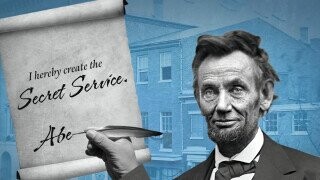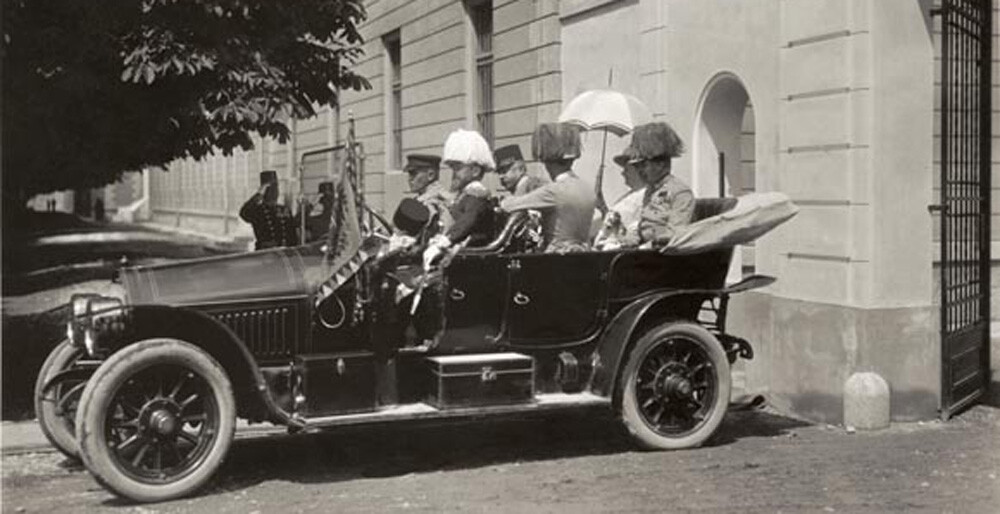Ironic Things 5 Famous People Were Doing the Very Morning of Their Assassination

At the end of the 2012 film Lincoln, Daniel Day-Lewis’ Lincoln character makes some weighty statements before dramatically leaving for a night out — at Ford’s Theatre. It wraps the film up in a nice bow, but some of us watching might roll our eyes. Though we know he’s about to get shot, until that happens, it’s just another day, so it must be inauthentic to slather all this significance on his final hours.
And yet, in reality, leaders totally do have weirdly significant final hours. Take a look at the last day of any famous man who was assassinated, and you’ll find bits seemingly crafted by some screenwriter who cares nothing for keeping things believable.
Robert F. Kennedy Saved His Son’s Life
Kennedy and his wife Ethel had 11 kids, seemingly in an attempt to remind the world that they were Catholic. The fourth of these kids, David, was 12 years old in 1968. People would later get to know David for some high-profile troubles with drugs, but he was lucky to even get a chance to sample all those drugs — as a boy, he nearly drowned, on the day his father died.
Don't Miss
The family was at the beach, at a house owned by director John Frankenheimer, which might explain why what happened next was so cinematic. David was swimming in the water and got caught in the undertow. Dad dove in to save him, and it was serious enough that even Kennedy got cut and bruised on the head from the rocks below.

They covered up those bruises with thick makeup that night, when RFK, who was running for president, spoke at L.A.’s Ambassador Hotel. David, filled with renewed faith in his father, watched live TV coverage of that event, which morphed into live coverage of the man’s assassination. It’s the sort of TV broadcast that’s bound to leave a kid with a lifetime of issues.
Abraham Lincoln Created the Secret Service
On April 14, 1865, Lincoln awoke from an ominous dream. In it, he’d been on a “singular and indescribable vessel that was moving with great rapidity toward a dark and indefinite shore.” He’d had that same dream before several important moments of the Civil War, so maybe this dream portended something great.
Later that day, he signed legislation creating the Secret Service for the first time. Just a few hours after that, he was assassinated, which is the sort of thing we generally imagine the Secret Service aims to prevent.
Now, when Lincoln created the agency, it wasn’t initially devoted to the president’s protection. It was an anti-counterfeiting unit. Still, their April 14th birthday remains our number one favorite fact about the Secret Service. When you learn that Kyle Reese went back in time and fathered John Connor, do you say to yourself, “Uh, that’s not ironic, actually, since John Connor was just a zygote at this time?” Hell no. You know that John Connor would eventually become the Resistance leader and Kyle’s dear friend, and so you marvel at his origin accordingly.

Franz Ferdinand Escaped a Different Assassination Attempt
On June 28, 1914, some kid shot Archduke Franz Ferdinand. Earlier that day, when he was first being driven from the train station in Sarajevo, Ferdinand ran into a bit of additional trouble.
It was around 10 in the morning, and someone chucked a bomb at the his car. “The Archduke pushed it off with his arm,” reported the news at the time, but in fact the bomb bounced off the roof of the convertible. Had the top been down, as it had been earlier in the ride (convertibles have enabled quite a few famous assassinations), the bomb would have killed him, maybe with his balls as ground zero in the explosion. Instead, the bomb bounced off the roof, fell to the road and detonated under the car behind him. It injured a count, a colonel and half a dozen other people.

This assassin was Nedeljko Čabrinović, a member of the same Black Hand organization as Ferdinand’s next assassin, Gavrilo Princip. In fact, at least two other assassins from this group had been stationed along the motorcade route, but neither threw their bombs, so the task fell to Čabrinović. Right after making his move, he put a cyanide pill in his mouth and jumped in the river. The pill just made him vomit, and the river was only a few inches deep, so authorities dragged him out and arrested him.
“Herr Burgermeister, it is perfectly outrageous,” said Ferdinand, when he reached the town hall. “We have come to Sarajevo on a visit and have had a bomb thrown at us.”
It was lucky for us all that he escaped that murder attempt. If he’d died that day, wow, the consequences would have been extreme and far-reaching.
Tsar Alexander Turned Toward Democracy
Alexander II, the Emperor of Russia, is remembered for war, genocide and escaping assassinations. People shot at him again and again, and one time, they filled his dining room with hundreds of pounds of dynamite. He escaped that last attempt because dinner was delayed, due to a late train.

Sometime around here, Alexander decided maybe he should try appeasing these angry peasants a little. A count proposed some reforms to the system that would give commoners representatives in a legislature. It wouldn’t exactly overthrow the monarchy, but it would be quite a step for an emperor to support something like this.
On March 1, 1881, Alexander announced that he’d be bringing the proposal to his council of ministers. Two hours later, unrelated to the announcement, a socialist threw a bomb into his carriage, killing him. His successor, Alexander III, turned out to be no fan of his father’s liberalization plan and turned back some of the reforms Alexander II had already made.
Let that be a lesson to you all: Even when the threat of assassination gets leaders to act, actual assassinations might just make things even worse.
Martin Luther King Jr. Had a Pillow Fight
MLK was assassinated two months before Robert F. Kennedy. People had long known he was in danger. You know that “I’ve been to the mountaintop” speech of his, where he said he might not live to reach the Promised Land that’d he’d glimpsed? He delivered that speech the very day before James Earl Ray shot him.
So, you might imagine that the man’s last days were entirely filled with anticipating and fearing imminent threats. But not so.
The day he died, King was staying at the Lorraine Motel in Memphis. His brother, A.D. King, was staying in the same motel, as was Andrew Young, future congressmen and U.N. ambassador. MLK asked them why they hadn’t phoned him all day, and Young said they’d been testifying to keep him out of jail (they’d been in court that day on behalf of the striking sanitation workers MLK represented). “Oh, you're getting smart with me?” said MLK, playfully. He threw a pillow at Young, who threw it back, and soon all three of them (plus one other friend who was there) were whacking each with pillows like a bunch of children. The pillow fight only ended when another minister knocked on the door, possibly disturbed by the ruckus. One hour later, a bullet hit King on the motel balcony.
It’s a shame we have no footage of that joyous pillow fight. Or, maybe it’s for the best that we don’t have it — some advertising company would probably use it to sell pillows, using the tagline “I have a dream.”
Follow Ryan Menezes on Twitter for more stuff no one should see.